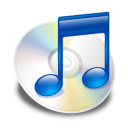Opening Act(s): Lone Justice
Setlist:
Where the Streets Have No Name, I Still Haven’t Found What I’m Looking For, Gloria, I Will Follow, Bullet The Blue Sky, Running to Stand Still, Exit, In God’s Country, A Sort Of Homecoming, Sunday Bloody Sunday, Maggie’s Farm, Bad, October, New Year’s Day, Pride (In The Name Of Love). Encore(s): People Get Ready, 40.
Remarks:
U2 launch the Joshua Tree tour in Tempe, Arizona. Prior to the show, promoter Barry Fey reads a statement explaining why U2 is playing in Arizona when other artists have boycotted the state over Governor Evan Mecham’s decision to rescind the Martin Luther King holiday. Bono loses his voice early in the show, but the crowd delightfully fills in for him, singing even the new songs with no trouble. I Still Haven’t Found What I’m Looking For, Bullet The Blue Sky, and Running To Stand Still are all performed live for the very first time tonight.
Media Review:
Los Angeles Times, April 4, 1987
U2 SHOWS GRACE UNDER PRESSURE AT TOUR OPENER
by Robert Hilburn
(Tempe, Arizona) — Kicking off arguably the most anticipated rock tour in two years, U2 delivered a triumphant concert here Thursday night that left little doubt that this Irish band is indeed the rock arrival of the ’80s.
The show was the start of a world tour that includes seven sold-out Southern California shows this month, and the quartet knew it had to live up to enormous expectations.
By the time U2 stepped on stage at the 13,500-capacity Arizona State University Activities Center, however, two more challenges had been added.
One was political: a statewide controversy over Gov. Evan Mecham’s rescinding of the holiday honoring Rev. Martin Luther King Jr. The other challenge was medical: lead singer Bono Hewson’s throat was so sore before showtime that he could only speak in a whisper.
The way the band dealt with both matters added to the evening’s sense of drama and accomplishment. Until arriving here Saturday night, the band members didn’t know about the Mecham controversy, which has caused at least two major pop attractions — Stevie Wonder and the Doobie Brothers — to vow not to perform in Arizona. U2 — which has saluted the late civil rights leader in two songs — was suddenly faced with a question: should it, too, cancel its Arizona shows?
Paul McGuinness, the band’s manager, said Thursday that the group was prepared to cancel the three shows if the “the mood of the community” favored it.
N/After talking with both fans and members of a statewide campaign to recall Mecham, however, McGuinness said the band decided to proceed with the concert as a way of dramatizing opposition to the governor’s action.
The band contributed an undisclosed amount to a Mecham recall committee and issued a statement that was read on stage by promoter Barry Fey before Thursday’s concert. The statement expressed “outrage” over the rescinding of the state holiday and called Mecham “an embarrassment to the people of Arizona.”
Ron Bellus, press secretary for the governor, accused U2 of meddling in Arizona politics and said the band hadn’t been fully informed about the reasons for the governor’s action. Bellus said Mecham’s predecessor, Bruce Babbitt, had established the holiday through executive order, when the only legal way to establish a holiday is through a vote of the state legislature.
Ed Buck, head of the Mecham Watchdog Committee, charged the governor was trying to use a technicality to cover his insensitivity in the matter. On the issue of the concert, Buck said his committee encourages pop artists to perform here and speak out on controversy.
Fans at Thursday’s concert also thought U2 was accomplishing more by playing here than by boycotting the state.
“Mecham doesn’t care if the Doobie Brothers go elsewhere, but he’s got to care if (26,000 at two shows) get together and raise their voices against him,” said Amy Moore, 17, a student who attended the concert.
Besides having the statement read at the start of the show, Hewson paused briefly during the song “Pride” — which cites King’s social contributions. He then provoked the evening’s biggest cheer by telling the audience, “I think the people of Arizona know what they need to do.”
Hewson’s voice problems were evident from the start of Thurday’s concert. He winced and reached for his throat as he began singing the opening number, “Where the Streets Have No Name.”
The song is a rousing expression about living up to one’s ideals and Hewson’s inability to sing the words with the proper urgency left it somewhat flat.
Before starting the second number, Hewson looked out at the audience and said, “I think you are going to have to help me out with some singing tonight.”
Even though the next song (“I Still Haven’t Found What I’m Looking For”) was from an album (“The Joshua Tree”) that has only been in stores for a couple of weeks, hundreds of fans in the Activities Center knew the words well enough to sing along.
N/As the band moved to more familiar material, the percentage of the crowd that sang along increased steadily. By the time the band got to U2 anthems like “Pride” and “Sunday Bloody Sunday,” Hewson — an especially uplifting performer with a charismatic manner — had turned the audience into a giant choir. He had used the momentary handicap to achieve just the type of audience participation that U2 has long prized.
Despite rock’s long association with outrage and rebellion, one of the music’s most powerful and prized elements has always been “celebration,” and U2 achieved a warm, embracing spirit in the hall.
Not that the band had to work hard to get the crowd to cooperate. U2 is the recipient of much the same loyality and affection among its fans enjoyed over the years by artists like the Who. Dozens of fans began lining up outside the backstage entrance at 6:30 a.m. Thursday, hoping to get a glimpse of the band.
Hewson’s throat was too tender to talk to reporters after the show, but the Edge — as guitarist Dave Evans prefers to be called — said the group cut three songs from the program because of Hewson’s voice problems.
“He’s had some voice problems before, but never this bad and things usually worked out once he got on stage,” the Edge said. “I could tell from the expression on his face tonight, though, that he was in agony. I think we just tried to cram too many rehearsals into too short a period.”
Trying to compensate for Hewson’s voice, Edge and the other members of the band (bassist Adam Clayton. drummer Larry Mullen Jr.) played with even more force than usual — underscoring the excellence of the band on a purely musical level. Its guitar-braced rhythms have a moody, seductive feel that asserts a highly personalized sound even in an arena setting.
Besides six songs from the new album, U2 augmented some of its old favorites with some outside material: a soulful rendition of Curtis Mayfield’s gospel-edged “People Get Ready” and an affecting medley of three songs that showed just how radical a band U2 is.
By putting together rock standards as disparate as Bob Dylan’s “Maggie’s Farm,” Alice Cooper’s “School’s Out” and John Lennon’s “Cold Turkey,” the band showed how the original meanings (the independence of the Dylan song, the drug nightmare of the Lennon tune) can take on new edges when mixed together and viewed from a 1987 perspective.
Like its predecessors, U2 really is still talking about sex, drugs and rock ‘n’ roll — only the conclusions are different. This is a band that is not afraid of tampering with rock ‘n’ roll history, if that’s what it takes to give the music new spirit and purpose.
U2, joined on the tour by Lone Justice, will be at the San Diego Sports Arena on April 13 and 14, and at the Los Angeles Sports Arena on April 17, 18, 20, 21 and 22.
© The Los Angeles Times. All rights reserved.
Admin
Latest posts by Admin (see all)
- Apirl 2014 U2 Arrives - December 22, 2013
- ‘Ordinary Love’ Nominated for Critics’ Choice Award - December 19, 2013
- Sacred Stables, Sacred Stadiums: Lifting the Veil on “Zooropa” at Christmas - December 19, 2013



